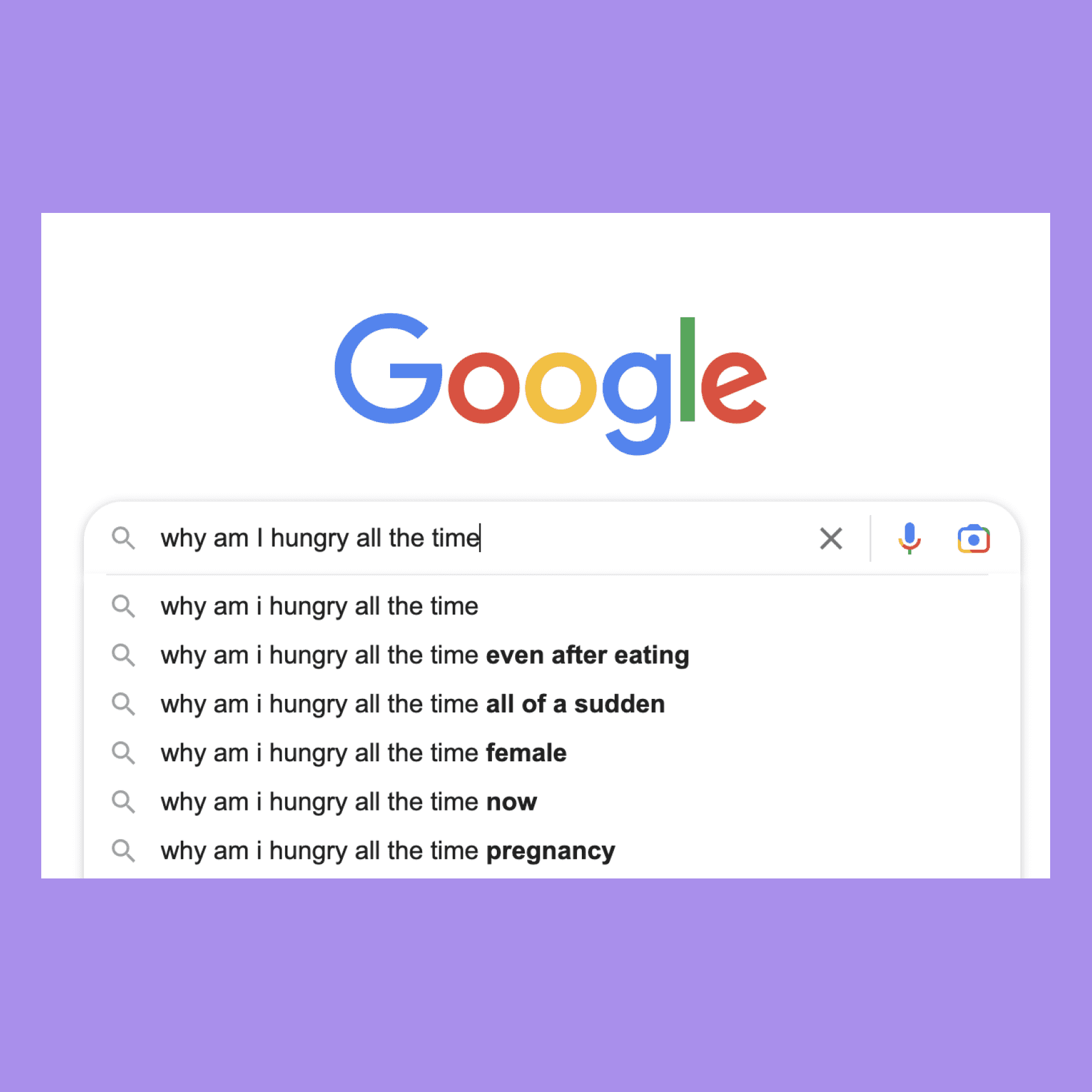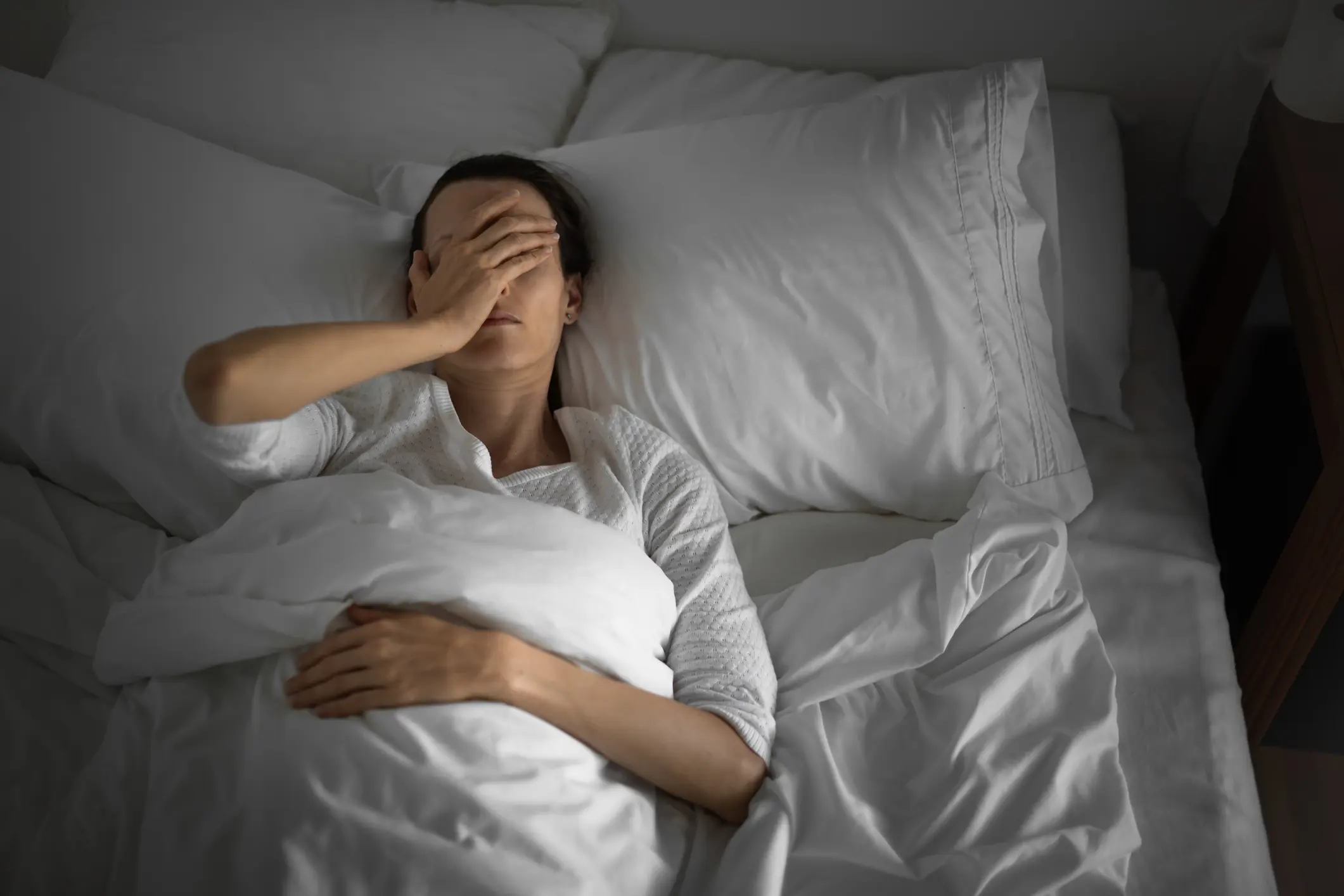
Published on Jan 31, 2023
Last modified on Apr 08, 2025
Appetite Through The Roof During Menopause? You’re Not Alone.
3 min read
It’s 2:30pm — you’ve just had lunch about two hours ago, but your stomach is rumbling, begging you for a snack (preferably some carbs). We’ve all been there, but why OH WHY do women experience food cravings so much more frequently come perimenopause?
If you’re feeling like your appetite is suddenly through the roof, know that it’s not just you. In a five-year women’s health study which concluded in 2014, researchers found that the psychological desire to eat, as well as hunger and food intake, all increased during the menopausal transition and remained high during postmenopausal years. While the study was small (only 94 participants), it’s still telling.
Why menopause affects appetite
Why menopause affects appetite all comes down to…surprise, surprise…hormonal changes.
- Increased ghrelin levels (aka our hunger hormone)
- Decreased leptin levels (leptin promotes feelings of fullness)
- Increased cortisol levels (cortisol is a stress hormone that, in excess, can cause overeating or emotional eating)
- Decreased estradiol and estrogen levels (estrogen is a sex hormone that, like leptin, typically helps regulate our appetite, metabolism, and body weight)
What you can do about it
We’re big proponents of intuitive eating and listening to your body when you feel hungry, but if you’re finding that your appetite changes and carbohydrate cravings are a bit too wonky for comfort, there are things you can do to try and reign it in.
Focus on getting enough sleep
Poor sleep can cause hormonal fluctuations, including increases in cortisol. Plus, because our bodies receive hunger signals from hormones such as ghrelin and leptin, a disrupted sleep cycle can lead to patterns of overeating. In fact, a study conducted by the American Heart Association found that people who slept an hour and 20 minutes less consumed 549 more calories than the control group. Although few studies have looked into the timing of sleep and sleep restriction, a few found a marked increase in hunger and appetite after delayed bedtime, sleep restriction or late night sleep.
READ MORE: Trouble Sleeping During Menopause? These Natural Sleep Aids May Help.
Hot flashes/night sweats keeping you up? Here’s what you can do about it.
Don’t fear the healthy fats!
Diversify your diet with a wide range of whole, nutrient-dense foods that keep blood sugar levels stable and increase satiety, especially veggies, whole grains, and healthy, high-fat foods (e.g., olive oil, avocados, nuts like almonds and walnuts, and fatty fish).
Increase your intake of organic whole soy products and flaxseed
Both of which boast mild estrogenic effects.
READ MORE: Is Soy Safe & Effective For Menopausal Women? Here’s What The Science Says
Interested in diving deeper into weight gain, one of the most common menopause symptoms? We’ve got you covered:
- Elektra’s Full Guide to Weight Management and Menopause
Including the low-down on insulin (aka blood sugar) resistance, “calories in” vs “calories out” theory, why healthcare professionals do not recommend most supplements for weight loss, and more. - Elektra’s Full Guide to Bloating During Menopause
As one of the more common symptoms of menopause, bloating usually boils down to gastrointestinal (GI) issues that many of us are already familiar with during PMS but that pop up with more frequency around this time of our life. - Yes, “Menopause Belly” is Normal. Here’s What You Can Do About It
Including our favorite strength training workouts to boost muscle mass, plus aerobic forms of physical activity to get your sweat on! - The 101 On Intermittent Fasting During Menopause and Postmenopause
What it is, how it helps (for weight loss/healthy weight management, sleep, and mental health), and how to begin. - Is Keto Safe & Effective For Menopause?
Breaking down what the science says (and doesn’t say) about the oh-so-trendy keto diet. - Are Weight Loss Drugs Safe & Effective For Menopause? (Ozempic, Wegovy, etc)
What exactly are these GLP-1s? How do they work? And most importantly, are they safe and effective for menopausal women?




